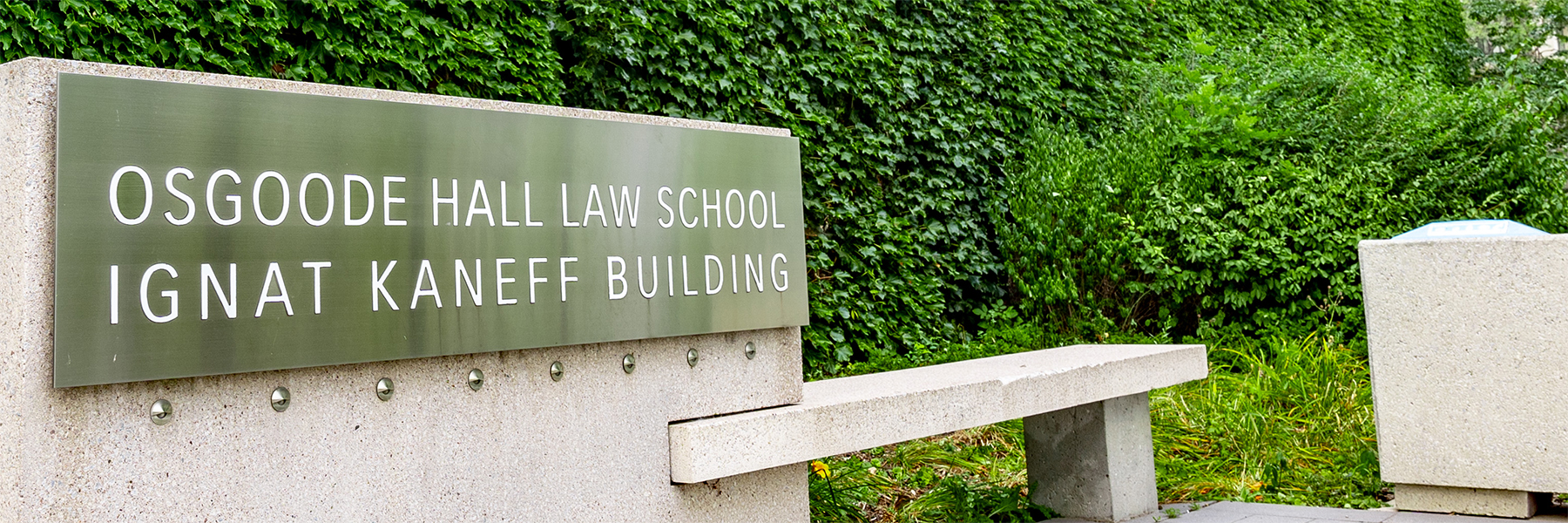
From corporate to criminal, environmental and Indigenous law, Osgoode Hall Law School’s recent Clinical Education Fair had something to offer every student.
The annual event, demonstrating Osgoode Hall Law School’s depth in experiential education, attracted more than 150 students to Gowlings Hall on Oct. 19. Representatives for each of the law school's 17 clinical education programs attended to provide students with information.

“Something that makes Osgoode stand out is the opportunity to apply the knowledge learned in the classroom in a hands-on environment,” said Lisa Del Col, manager, Experiential Education & Career Development.
“Students get the opportunity to work on actual client files and analyze or advocate on live issues, which helps translate theory into practice,” she added.
First- and second-year students are invited to apply to the clinical education programs of their choice in January, to participate in the program the following academic year. Clinic credit values vary and can take place throughout one term or an academic year.
The wide range of clinical programs includes the Advanced Business Law Workshop, the Anti-Discrimination Intensive Program, and the Environmental Justice and Sustainability Clinical Program. Other options include Feminist Advocacy: Ending Violence Against Women Clinical Program, the Innocence Project, and the Intensive Program in Indigenous Lands, Resources and Governments.
All 17 clinical education programs can be found here.
“We’re proud of the breadth of clinical opportunities available for students to immerse themselves in an area of law that interests them,” said Del Col. “It’s… an opportunity to think critically about the work they’ve done and reflect on how it links to ethical practice and the larger roles of lawyers in society.”
Osgoode’s clinical education programs represent only one aspect of its rich experiential offerings. Students may build their oral advocacy skills and gain course credits through one of the most comprehensive mooting and lawyering skills competition programs in Canada.
Additionally, there are two graduation requirements that incorporate experiential education. The praxicum requirement is a course that integrates legal theory, practice and reflection, while the Osgoode Public Interest Requirement is a 40-hour volunteer commitment that enables participants to engage with community members and help promote better access to justice.
To broaden their experience even more, Osgoode Hall Law School students can participate in the Osgoode chapter of Pro Bono Students Canada or attend the Anishinaabe Law Camp – run by Osgoode’s Office of Indigenous Initiatives and Reconciliation – which introduces students to Anishinaabe legal concepts, pedagogies and modes of reasoning.
